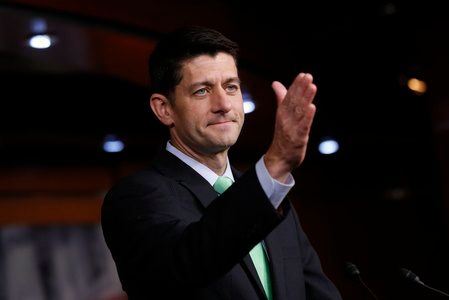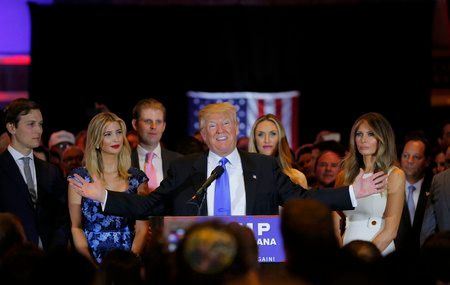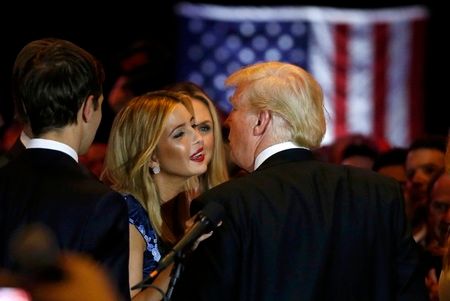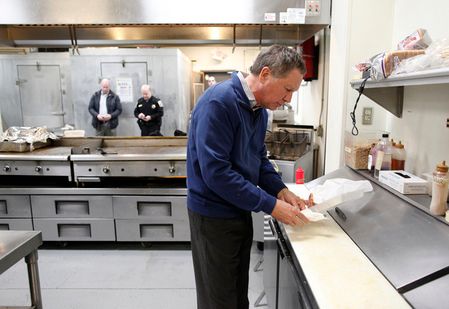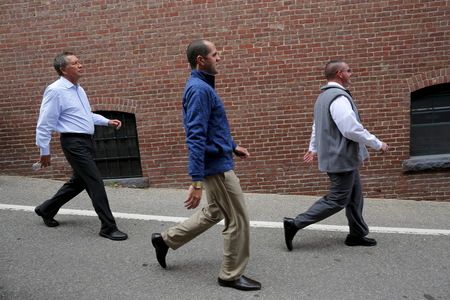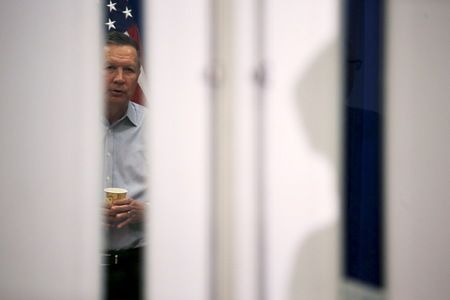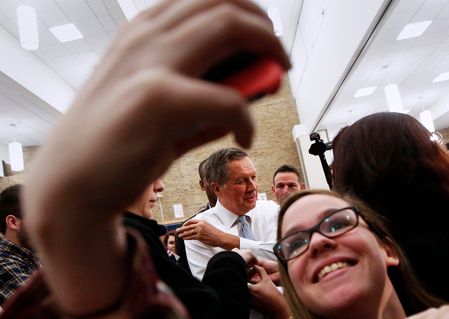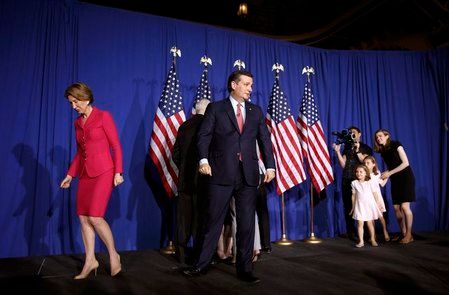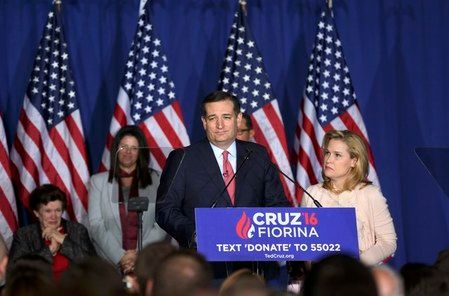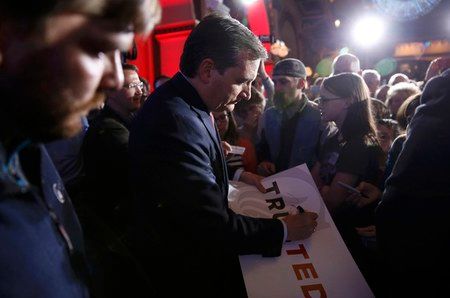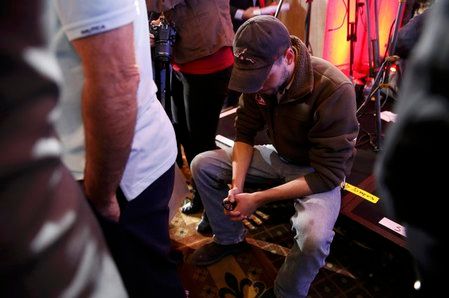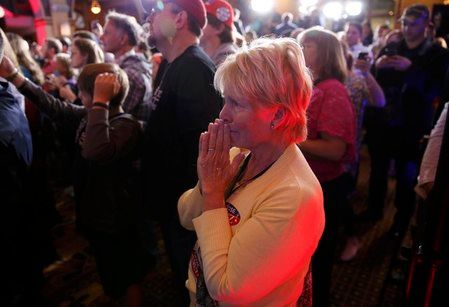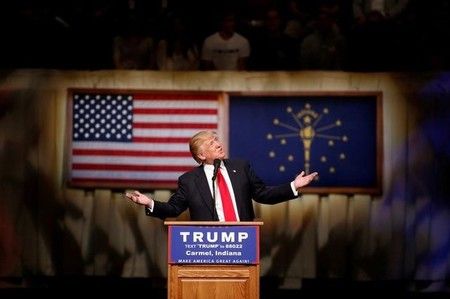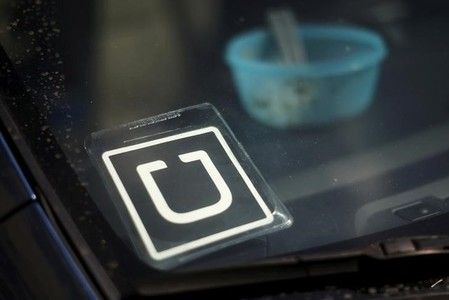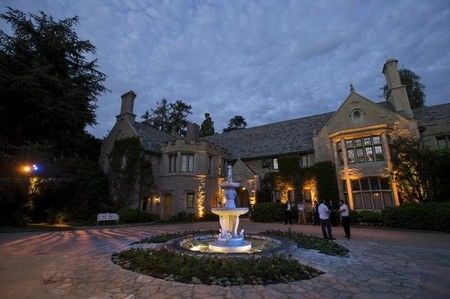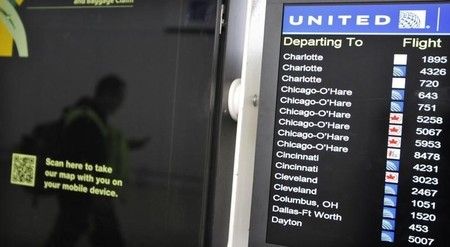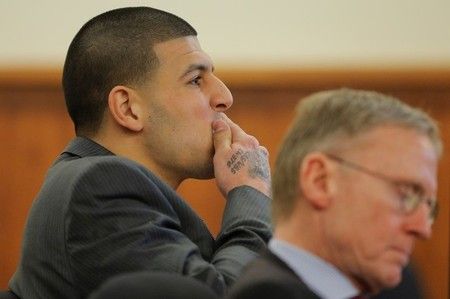Advertisement
Republican House Speaker Ryan not ready to support Trump
By Emily Stephenson and Susan Cornwell
WASHINGTON (Reuters) – The top elected Republican, Paul Ryan, said on Thursday he was not ready to endorse Donald Trump, a sign of the challenges the party’s presumptive presidential nominee faces rallying the Republican establishment behind his White House bid.
Ryan, the speaker of the U.S. House of Representatives, said conservatives wanted to know if Trump shares their values.
“I hope to support our nominee, I hope to support his candidacy fully,” Ryan said on CNN. “At this point, I’m just not there right now.”
Trump, who has built a huge following with an anti-establishment message, shot back at Ryan in a statement.
“I am not ready to support Speaker Ryan’s agenda. Perhaps in the future we can work together and come to an agreement about what is best for the American people,” he said.
The Republican National Committee, under pressure to unify the party or face an electoral rout in the Nov. 8 election, said Ryan and Trump were expected to meet soon. It added that “only a united Republican Party will be able to beat Hillary Clinton.”
“We respect Speaker Ryan’s opinion and believe that since the primary ended early we will have time to unify. We anticipate the two meeting soon to begin to help unite the party,” said RNC spokeswoman Lindsay Walters.
Trump’s last remaining rivals in the Republican race, U.S. Senator Ted Cruz and Ohio Governor John Kasich, dropped out this week, clearing the New York billionaire’s path to be picked as the presidential nominee. He will likely face Clinton, the Democratic front-runner, in the Nov. 8 general election.
Many Republicans have grappled this week with whether to support Trump, who has deviated from the party line on trade and upset the party establishment with offensive comments about women and immigrants. Trump on Thursday announced a new campaign finance chairman in response to questions about his readiness for a general election race.
TAKING ON CLINTON
Trump, speaking to thousands at a rally in Charleston, West Virginia, on Thursday night, sharpened his criticism of Clinton, the kind of tactic that some Republican strategists believe will help unify the party.
He blasted Clinton for saying recently she would impose clean-energy policies that would put coal miners out of business. He put on a hard hat presented to him by the state’s coal miners’ association and made a shoveling motion.
“And for those miners, get ready: You’re going to be working your asses off,” he said.
In a sign some Republicans are rallying around Trump, Nebraska Governor Pete Ricketts, whose family has helped bankroll the anti-Trump group Our Principles, is set to endorse Trump on Friday when the candidate visits Omaha.
Former Texas Governor Rick Perry, who ran unsuccessfully for the 2016 nomination, told CNN he now supported Trump as well.
Ryan criticized Trump in December for proposing to temporarily ban all Muslims from entering the United States and knocked him in March for failing to denounce white supremacist groups during a television interview.
The House speaker, who was the running mate of Republican 2012 presidential nominee Mitt Romney, a harsh Trump critic, said he hoped the party would be unified by this summer but that the pressure was on Trump to do that.
“He won fair and square,” Ryan said of Trump, acknowledging his own policy differences with the New York billionaire businessman. He added: “If we don’t unify all wings of the party, we’re not going to win this election.”
Ryan repeatedly denied interest in running for president this year despite attempts to draft him by some in his party. He has been putting together a policy plan for House Republicans to campaign on, which he says will be released before the convention in July.
CAMPAIGN FUNDRAISING
Trump on Thursday began shifting focus from the bruising primary campaign to the general election. He has largely used his own money for his primary fight but plans to follow the more typical path of raising money from outside sources for the general election to succeed Democratic President Barack Obama.
He named his campaign finance chief on Thursday – Steven Mnuchin, a former Goldman Sachs partner who is chief executive of private investment firm Dune Capital Management and with whom Trump worked in a business capacity in the past.
Mnuchin has a long history of political donations, including to Clinton. Since 1998, Mnuchin has given about $71,000 to Democrats, compared with about $37,000 to Republicans. Republicans have questioned Trump’s loyalty to the party because he also donated to Democratic candidates in the past.
U.S. Representative Renee Ellmers, a Republican from North Carolina who has endorsed Trump, told Reuters the campaign would begin raising money for the party.
“They are going to start understanding and realizing that in order to grow this operation, they will need to grow funds, not only for him and for the campaign to beat Hillary Clinton, but for the Republican Party itself,” Ellmers said.
Historically, political parties have depended on their nominees to raise money in order to fund their other operations, including working to elect members of the House of Representatives and Senate.
One key worry for Republicans has been that their candidates for Congress and other elective positions could suffer with the divisive figure of Trump at the top of the ticket.
Ron Bonjean, a Republican strategist, said Ryan gave lawmakers in his party cover to steer clear of Trump in their re-election campaigns.
“He is positioning the Republican conference and giving Republicans a message they can hold onto,” Bonjean said.
(Additional reporting by Steve Holland in Charleston, W.V., Doina Chiacu, Megan Cassella, Jason Lange, Ginger Gibson and Richard Cowan in Washington, and Richard Leong in New York; Writing by Emily Stephenson; Editing by Peter Cooney)

